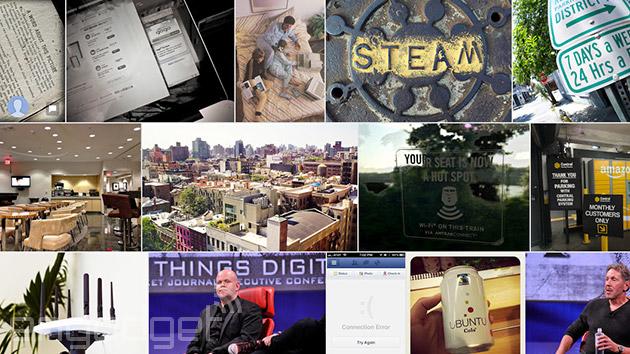webp
Latest

Google's lightweight image format makes YouTube pages load 10 percent faster
We all want the internet to be faster, right? Well, Google is hoping to make that happen one YouTube thumbnail at a time. Its leaner WebP image format has been used on the Play store for some time now, and Mountain View's latest venue for the faster-loading files its video service. The outfit says that the switch has resulted in up to 10 percent speedier page-loads, and overall it's shaved tens of terabytes off its internal data transfer rates every day. The Chromium Blog says that this should help lower bandwidth usage for users as it rolls out, and, what's more, that there's a test-version of WebP running in Chrome's beta channel that's faster yet. How much so? It drops image decode speeds by 25 percent. If that means faster access to super hero videos and pictures of lazy dogs, sign us up.

Mozilla to improve web page load times through image trickery
Ever tried loading websites full of selfies and filtered food images on a shabby connection? If your answer is yes, then you know it always leads to tears and frustration. Good thing Mozilla's got your back -- the non-profit behind Firefox just announced a project called mozjpeg, which aims to shrink JPEG file sizes for faster-loading web pages. To get the ball rolling, the group made a fork of an existing JPEG codec (libjpeg-turbo) and threw in a feature that crunches photos without affecting quality. That gave rise to mozjpeg software version 1.0, which successfully shrunk the file sizes of 1,500 JPEG photos by an average of 10 percent during a test run. It even worked on PNG images, though it was a lot less effective and only managed to shave 2 to 6 percent off their sizes.

Internet.org targets efficiency and cost reduction to connect the next 5 billion
If Internet.org ever hopes to be successful with its goal of bringing affordable internet to the next 5 billion people, the cost of delivery will need to be much cheaper than it is today. Today, members of the coalition -- which includes Facebook, Qualcomm, Ericsson and others -- released a substantial 70-page white paper that outlines some of the initial steps that are on the drawing board. According to the group's estimates, data delivery is currently 100 times too expensive to execute the vision of Internet.org, but all of that could change within the next decade. To accomplish this, Internet.org is seeking ways to bring a tenfold improvement to the cost of delivering data, along with apps that are 10 times more efficient. For Facebook's part, it highlights technologies such as HipHop for PHP and the HipHop virtual machine, which allows its existing servers to accommodate 500 percent more traffic than before, and its Air Traffic Control system, which allows it to simulate different mobile networks and congestion systems around the world. Similarly, Facebook is looking to compression technologies such as WebP -- currently in use on its Android app -- to replace image formats such as PNG and JPEG, which alone could reduce network traffic by 20%. Another challenge is looming, however, as Qualcomm estimates that the demand for data will double each year over the next 10 years, ultimately increasing 1000 fold over where it is today. To meet that demand, it's lobbying for a substantial spectrum reallocation, along with technologies such as carrier aggregation, LTE-Broadcast and LTE Direct. Combine this with more unconventional approaches that it'll reveal at a later date, and you begin to appreciate the massive undertaking that lies ahead for the partners of Internet.org.

WebP is Google's new, leaner image format
Google's unleashed a new image format -- WebP -- and the images? Well, they're about 40 percent smaller than JPEGs. Good news for space savers, to be sure, but if we know anything about 'the world' it's that the best format doesn't always win, and sometimes, just getting there first is enough. WebP has just been released as a developer preview. Like JPEG, WebP's lossy compression gives you the option to choose between file size and quality. The drawback? WebP files take much longer to encode -- apparently about eight times as long. Hit up the source to check out more examples like the one you see above.


